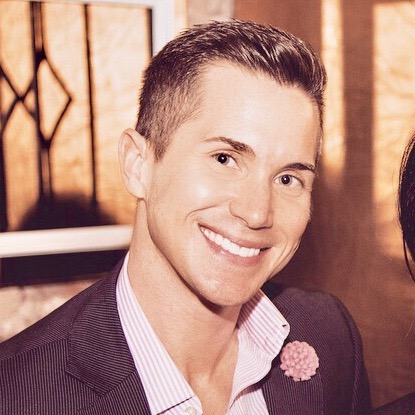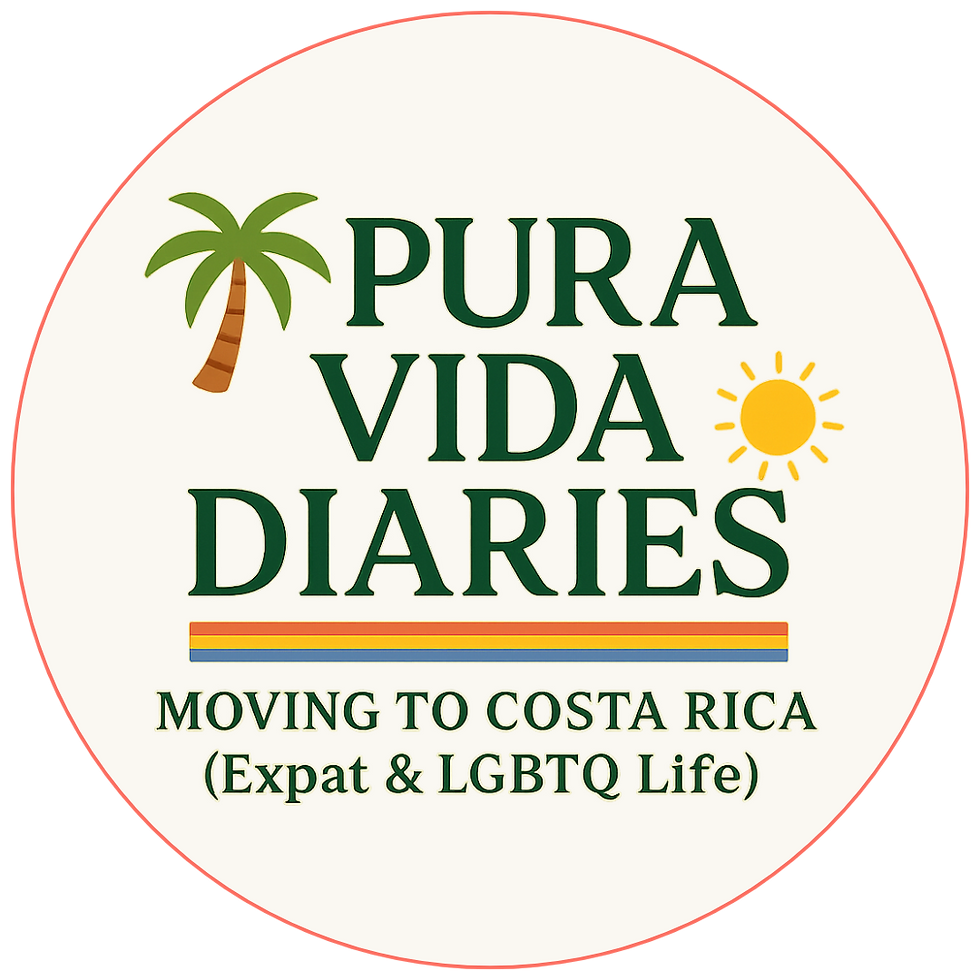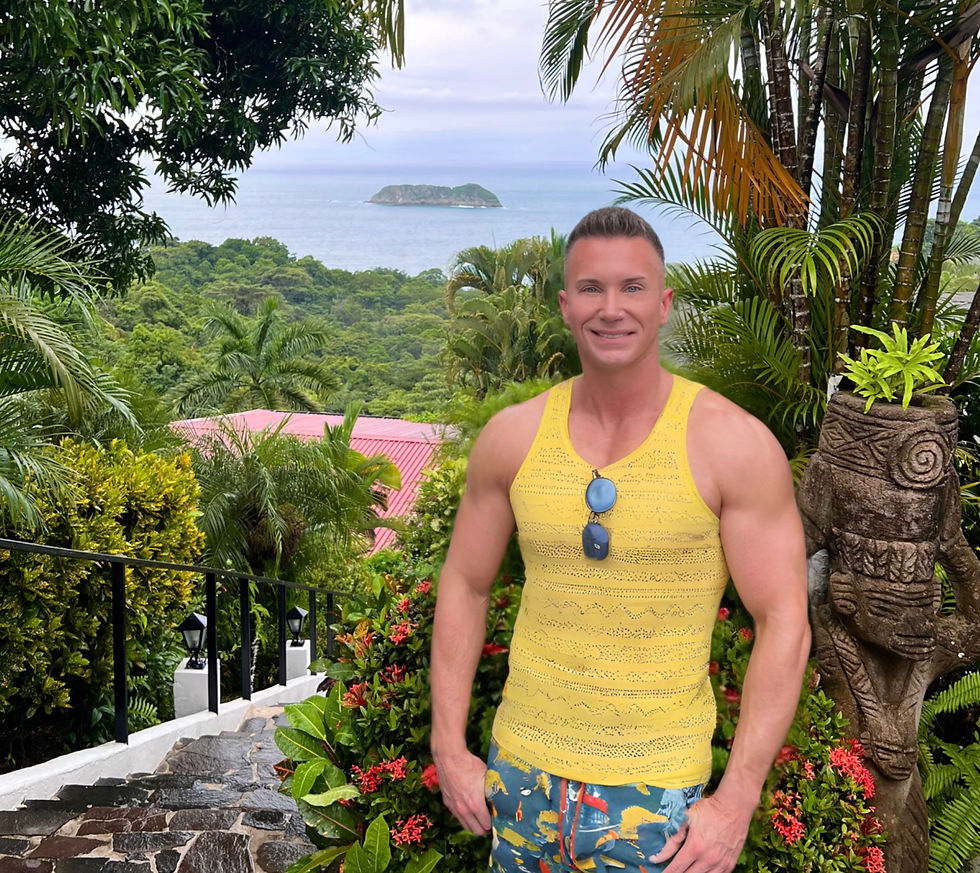Healthcare in Costa Rica — Public vs Private & Everything In Between
- Waymon Hudson

- Sep 10, 2025
- 3 min read
Updated: Nov 6, 2025
Costa Rica Healthcare: What Expats Really Need to Know
Healthcare in Costa Rica is a lot like the local fruit stands — there’s something for every budget, but you should know what you’re actually biting into before you commit.

1. The Two Big Players
Costa Rica has two main healthcare systems:
Caja Costarricense de Seguro Social (CCSS or “Caja”) – the public system, funded by contributions from workers, employers, and the government.
Private Healthcare – fast, modern, English-speaking doctors, and more comfortable clinics, at higher cost.
2. Public Healthcare in Costa Rica (Caja)

Mandatory if you’re a resident.
Monthly payments: income-based, usually $75–$450.
Includes: public clinics, hospitals, preventive care, low-cost prescriptions.
Trade-offs: waits can be long, appointments harder to book, facilities crowded.
But: affordable, universal, and reliable for chronic conditions and emergencies.
3. Private Healthcare in Costa Rica
Modern hospitals & short wait times.
English-speaking doctors, many U.S. or Europe trained.
Costs: a fraction of U.S. prices (ER visits can be $150–$300, not $800+).
Insurance: around $100–$300/month, depending on age and coverage.
Many expats choose this for speed, comfort, and choice.
4. The Combo Strategy (Best of Both Worlds)
Most expats use both:
Caja for the basics, emergencies, and chronic care.
Private for fast specialist visits, comfort, and flexibility.
Think of it as gallo pinto and pancakes. 🍳🥞
5. Medications & Pharmacies in Costa Rica

Pharmacies are everywhere, even in smaller towns.
Many medications are available without a prescription (antibiotics, birth control, blood pressure meds).
Prices: often far lower than in the U.S., but you can check availability + costs on pharmacy websites or by asking at a local farmacia.
Tip: Bring prescriptions when you first arrive to compare and transition smoothly.
6. LGBTQ+ Healthcare in Costa Rica

Same-sex marriages are recognized, so spouses qualify under residency benefits.
LGBTQ+ patients generally report respectful care, especially in cities and tourist areas.
Growing awareness of gender-affirming care, though access may vary regionally.
Quick Takeaway

If you’re coming from the U.S., Costa Rica’s healthcare will feel like stepping into an alternate universe — one where you can actually see a doctor before you’re on your deathbed.
👉 Public care (Caja) is affordable and universal.
👉 Private care is fast, modern, and still cheaper than U.S. prices.
👉 Together? You get reliable coverage, quick appointments, and freedom from $800 ER bills.
Also check out the rest of the Pura Vida Diaries Blog Series:
Part 1: Moving to Costa Rica: Why I Chose Here Out of Anywhere in the World
Part 2: Thinking of Moving to Costa Rica? Cost of Living, Rent & Reality Check
Part 3: Residency in Costa Rica: How to Stay Legally (Without the Border-Run Headache)
Part 4: How to Be a Good Immigrant in Costa Rica (a.k.a. Don’t Be “That” Expat)
Part 6: Pets in Paradise: Bringing Your Dog or Cat to Costa Rica — and Why You Might Adopt One Here
Part 7: Culture Shock in Costa Rica: Why It’s the Best Thing That Ever Happened to Me (Pura Vida, Baby)
Part 9: Learning Spanish in Costa Rica: A Fun (and Honest) Guide for Expats Who Aren’t 22 Anymore
Part 10: Remote Work in Costa Rica: Jungle Wi-Fi, Time Zones, and the Digital Nomad Life
Part 11: Costa Rica Expat Challenges: The Hard Stuff No One Posts on Instagram
Basically? If you’ve ever Googled “Can I really move to Costa Rica?” …this series is your sign.
FAQ: Costa Rica Healthcare
Is healthcare in Costa Rica good?
Yes. Costa Rica has one of the best healthcare systems in Latin America, with both affordable public care (Caja) and modern private hospitals.
How much does healthcare cost in Costa Rica?
Caja contributions are $75–$450/month depending on income. Private insurance averages $100–$300/month, with out-of-pocket visits far cheaper than in the U.S.
Can expats use the public healthcare system in Costa Rica?
Yes. Residents are required to join Caja, which provides universal coverage, prescriptions, and hospital access.
Is medication affordable in Costa Rica?
Yes. Many medications are available without prescription, and prices are often lower than in the U.S. Costs can be checked directly at local pharmacies (farmacias).
Does Costa Rica offer LGBTQ-friendly healthcare?
Yes. Same-sex marriages are recognized, so spouses qualify for residency benefits. Care is generally respectful and inclusive, especially in urban areas.




Comments